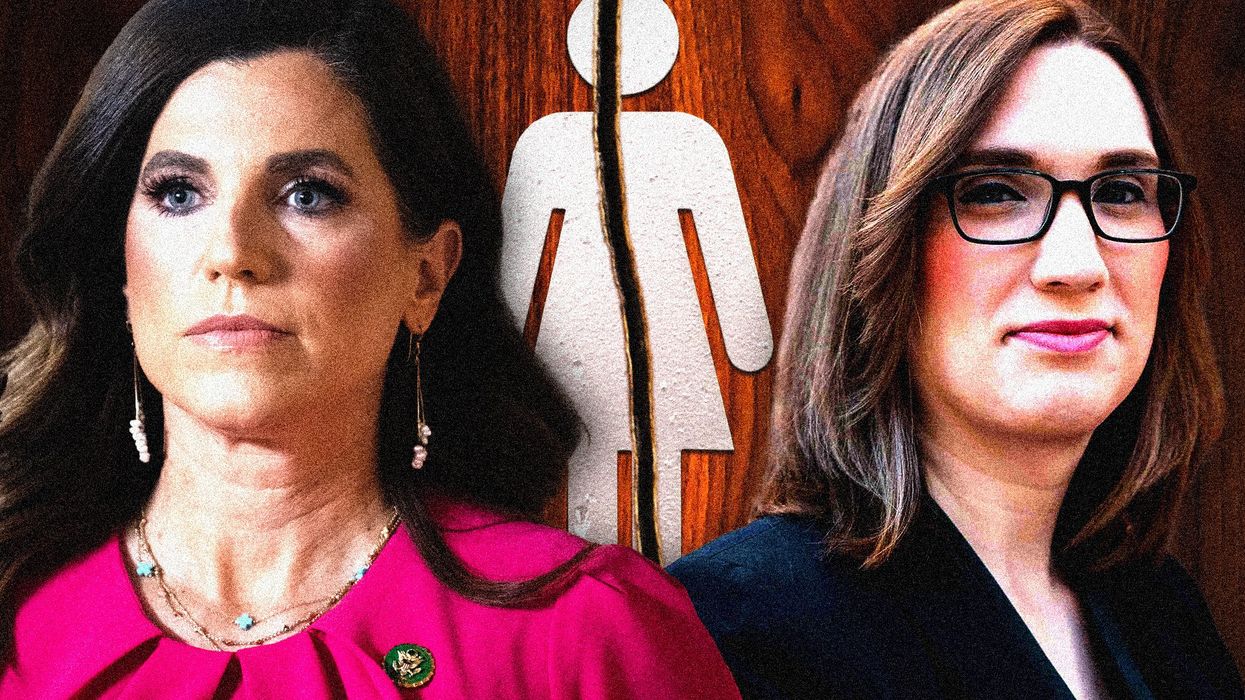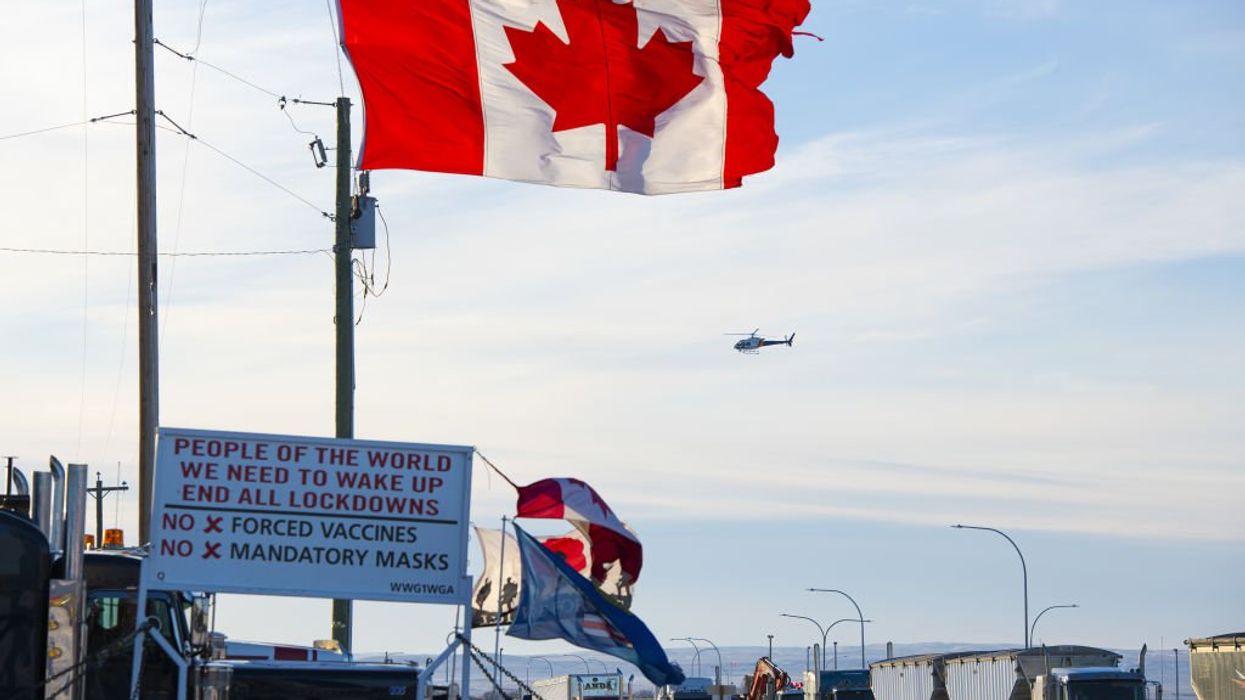
© 2024 Blaze Media LLC. All rights reserved.
There are few people who inspire more respect and admiration than our brave servicemen and women -- those willing to selflessly serve their country and at times, even face death for the sake of others. While it is always a celebrated occasion when a soldiers' tour of duty has ended, those who endured combat often return home bearing painful psychological scars that few outside fellow veterans are equipped to understand.
Post-Traumatic Stress Disorder (PTSD) is an anxiety disorder affecting one's ability to cope physically and mentally following severe psychological trauma. Given war's gruesome elements, it is no wonder many of those serving on the front-lines will experience the disorder at some point. Flashbacks, nightmares, avoidance, aggression and insomnia are just a few of the symptoms one experiences while in the throes of this serious condition.
Focusing on the sacrifices and struggles facing American soldiers today, Glenn Beck dedicated his Tuesday evening broadcast to those like former Navy SEAL Chris Kyle, who was shot by a fellow veteran potentially suffering from PTSD just days ago.
"He came home and continued his life of service," Beck said. "His mission was to help fellow battle-torn soldiers cope with coming home."
Beck, who has spent time with the families of both Kyle and fellow veteran Marcus Luttrell, noted the senseless nature of Kyle's death and that accusations leveled by Ron Paul and others indicating that Kyle had been "treating PTSD" only serves to disrespect the fallen veteran's legacy.
Military men and women enlist for pure motives guided by "love of country," Beck said. And because they believe it is the honorable thing to do. While the roles and duties for American soldiers are as diverse as the enlistees, those who serve in combat positions, or come toe-to-toe with life and death scenarios, face challenges few could imagine.
To illustrate, Beck read an excerpt from Kyle's book, "American Sniper," in which the world-class marksman explained how difficult his job truly was:
I looked through the scope. The only people who were moving were the woman and maybe a child or two nearby. I watched our troops pull up. ten young, proud Marines in uniform got out of their vehicles and gathered for a foot patrol. As the Americans organized, the woman took something from beneath her clothes, and yanked at it. She'd set a grenade. I didn't realize it at first. 'Looks yellow,' I told the chief... 'She's got a grenade,' said the chief. 'That's a Chinese grenade...' 'Take a shot. 'But" -- 'Shoot.' Get the grenade. The Marines- I hesitated. Someone was trying to get the Marines on the radio, but we couldn't reach them. They were coming down the street, heading toward the woman. 'Shoot!' said the chief... I shot. The grenade dropped. I fired again as the grenade blew up. It was the first time I'd killed anyone while I was on the sniper rifle.
The passage outlines the difficult decisions those in Kyle's position have to make everyday when they are on the front-lines and truly hold someone else's life in their hands. The crisis of conscience, the call of duty, the desire to protect and do good, and feelings of guilt -- even for killing one poised to commit unspeakable ill -- are likely all emotions that rise to the surface of one's psyche in these times.
When a veteran returns, potentially suffering from PTSD, prescriptions tend to be the first line of defense employed by doctors who've only a rudimentary understanding of the disorder. Despite their laundry list of serious side effects, soldiers in mental and emotional pain are left with few options but to take whatever help is afforded them.
Having gone through similar experiences, Kyle's approach was to be a listening friend who helped fellow veterans endure through their own respective struggles.
Beck noted that medicines can only mask problems and symptoms of PTSD but cannot dislodge the painful experiences and emotions that brought them to bear in the first place. He added that we have an "obligation" to end the current war and prevent additional wars from being created. What's more, a greater focus on the care troops receive upon their return home should be paramount.
Beck said it is his goal to raise money for helping to treat those with PTSD and noted the skewed priorities of government in spending billions of taxpayer dollars on other initiatives, knowing there are veterans in our country who are hurting.
[mlbvideo content_id=25587201]
Beck was also joined by Vietnam veteran Bill Potter, former Navy SEALs Pete Scobell and Marcus Luttrell to discuss PTSD:
[mlbvideo content_id=25587223]
--
Glenn Beck's charitable organization, Mercury One, began taking donations for those wishing to honor Navy SEAL Chris Kyle and his friend Chad Littlefield.
To donate by mail:
Mercury One
PO Box 140489
Irving, TX 75014
Make checks payable to Mercury one but in the memo field please write "Chris Kyle Fund."
--
Want to leave a tip?
We answer to you. Help keep our content free of advertisers and big tech censorship by leaving a tip today.
Want to join the conversation?
Already a subscriber?
more stories
Sign up for the Blaze newsletter
By signing up, you agree to our Privacy Policy and Terms of Use, and agree to receive content that may sometimes include advertisements. You may opt out at any time.
© 2024 Blaze Media LLC. All rights reserved.
Get the stories that matter most delivered directly to your inbox.
By signing up, you agree to our Privacy Policy and Terms of Use, and agree to receive content that may sometimes include advertisements. You may opt out at any time.


